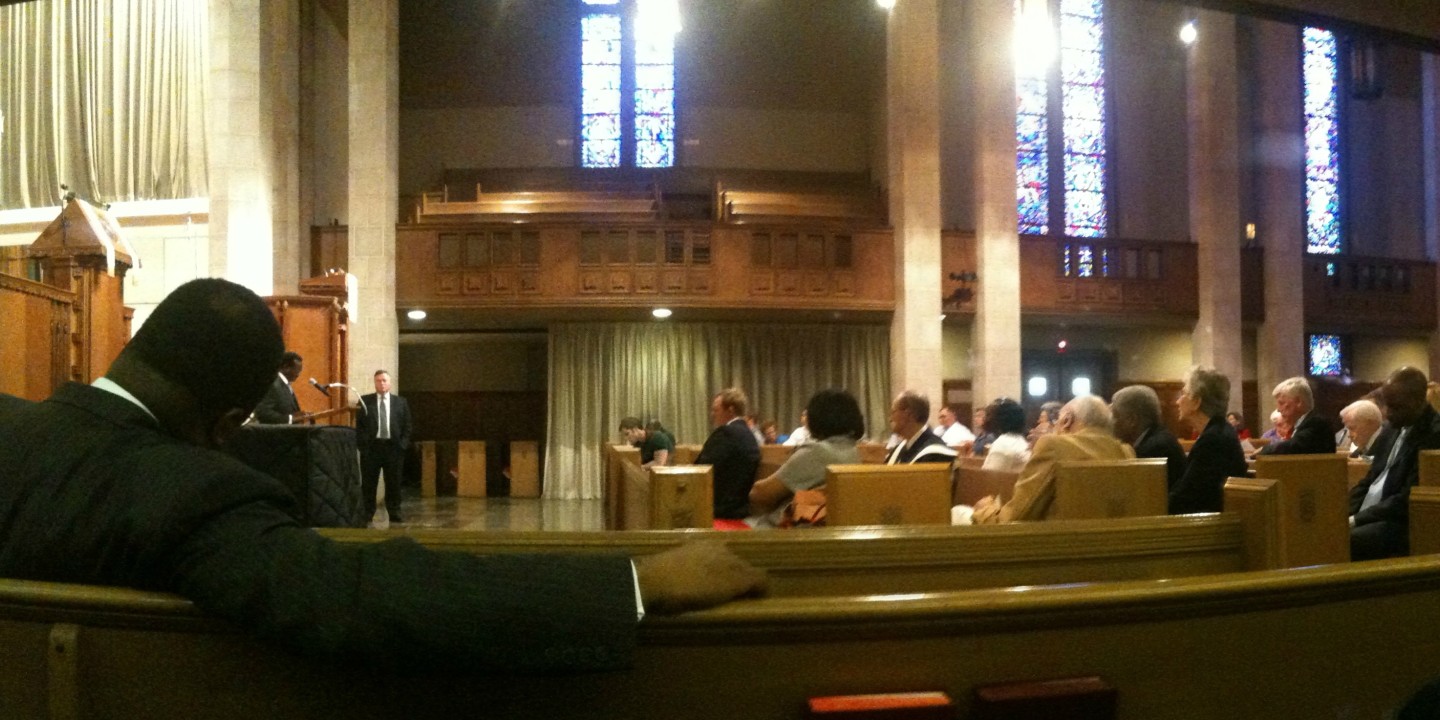My synod’s efforts to help pastors with their finances
Meeting personal money challenges can’t be the responsibility of ministers alone.
A Lutheran woman named Brigette made a midcareer decision to enter pastoral ministry. She and her husband paid as much as they could out of pocket for seminary expenses (even as they tried to help their two children with college), but her debt upon leaving seminary was $50,000. As it happens, that is the average seminary debt for people entering ministry in the Evangelical Lutheran Church in America.
Such a large debt complicated her desire to serve the church wherever needed. “We are committed to honoring where God may lead me in the church, and so there is tension between honoring the call to ministry and care for our family,” she said.
Read our latest issue or browse back issues.
A pastor named Todd sent a note about his financial situation to the ELCA’s Rocky Mountain Synod. “Life is unexpected, and my divorce left me in a very different place than I ever expected,” he wrote. “One of the consequences of divorce was debt. Money was tight and credit was loose. As my credit balance increased, so did my payment amounts until I could no longer afford them.”
Many other ministers throughout the church face a similar dilemma. A good many carry combined debt from college and seminary totaling over $100,000. That kind of debt can stretch a commitment to ministry to the breaking point. It also threatens marriages and families and undermines the vocational stability parishes and ministers hope for.
A young first-call pastor, thrilled to be serving a small congregation, broke into tears as she talked about having to choose between making an offering to her church and buying food. Many ministers live with deep feelings of guilt and shame when it comes to money. Whether it’s the weight of debt or the simple fact that compensation is inadequate to meet life’s basic needs, there is a crisis in the economics of ministry.
Meeting these challenges cannot be the responsibility of ministers alone. Congregations and the wider church have their own responsibility. Our synod has tried to address the issue head on. With the help of a grant from the Lilly Endowment, we’ve sought to address pastors’ financial dilemmas, encourage congregations to be more generous, and transform the culture of shame and guilt about money that oppresses many pastors.
Evidence of shame and guilt presented itself early on in our project. We had envisioned creating Fiscal Wellness Teams in congregations, joining the pastor with lay leaders to create a financial plan for the minister. The idea was a nonstarter with pastors. They told us they would not participate in a program that, in their view, gave laypeople power over them as they were in the vulnerable position of revealing their finances. Some said the program would make them feel like imposters—after all, they were supposed to be leaders of stewardship and other financial ministries. The gap that was revealed between pastoral leaders and congregations further deepened pastors’ sense of shame and guilt.
A major component of our project was directing modest resources to those in severe financial need. We gave sums between $1,000 and $4,000 to relieve education debt, credit card debt, medical debt, and other kinds of debt. In addition, we provided incentives for retirement savings and for continuing education. We funded a small number of scholarships to allow ministers to participate in the Executive Skills for Pastors course at California Lutheran University. We couldn’t help pastors make a dent in a $50,000 seminary debt. But the pastors whom we helped told us it meant a lot for their circumstances to be acknowledged.
We also held a series of gatherings across the synod involving over 500 laity on the theme “Money and the Church: For the Life of the World.” These were not practical conversations geared toward promoting stewardship campaigns or financial policy. Instead, we wanted to have what synod bishop Jim Gonia called “foundational conversations around our beliefs and habits with respect to money: how and why we keep it, spend it, share it.” Participants wrote both personal and congregational money autobiographies, and shared their stories with others. We wanted to reject the taboos against talking about money. We wanted to encourage vulnerability and honesty on the issue.
By involving lay leaders in these conversations, we publicly named the economic crisis that many ministers face. Clearly, congregational generosity is key to providing ministers with adequate compensation as well as support for synod and church-wide ministries.
Our primary goal in the project was to listen to and walk with ministers facing economic challenges. It doesn’t take immense amounts of money to help one another know that we are not alone. These relationships have been a blessing in themselves. One pastor noted, “The grant provided seed money to begin a contingency heath savings account. Most important, it was a source of support, reminding me I am not alone in my faith journey.” Another pastor shared, “I am so grateful for the compassion in hearing my life circumstances and helping address the financial issues I felt ashamed to talk about with others.”
Life is unexpected, as Todd said. But so are grace and mercy. The old ways won’t work to sustain the economics of ministry. God is showing us glimpses of some new ways that give life.
A version of this article appears in the print edition under the title “My synod’s effort to help pastors with their finances.”







